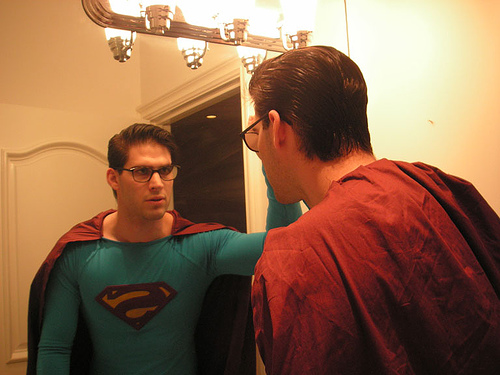Suppose you walk into a restaurant and order a sandwich. They give you the option of a side: fries, a baked potato or chicken nuggets. Now suppose, they add a salad to that list of sides, something healthy. How would that change the distribution of the sides? We probably would think that quite a few people would choose the healthy salad, but instead when the salad is on the menu, people are 3 times more likely to order fries (as a recent study demonstrated).
The mere thought of thinking about ordering a salad registers as having done something healthy, so now we deserve a reward: fries. Thinking about a salad is no more healthy than thinking about working out. Yet it often feels like recognizing we need to change is good enough rather than recognizing we actually have to act on that knowledge to fix the problem. We find this situation in many places: our work, our relationships, our bodies.
Identifying the problem beats sticking our head in the sand and pretending no problem exists, but if we want to get better, we then have to act on what we know. Don’t be lulled into thinking that recognizing the problem solves it.
Anyone who listens to the word but does not do what it says is like someone who looks at his face in a mirror and, after looking at himself, goes away and immediately forgets what he looks like. But whoever looks intently into the perfect law that gives freedom, and continues in it—not forgetting what they have heard, but doing it—they will be blessed in what they do. James 1:23-25 (NIV)
Photo Credit: Fonzie’s cousin cc

Leave a Reply